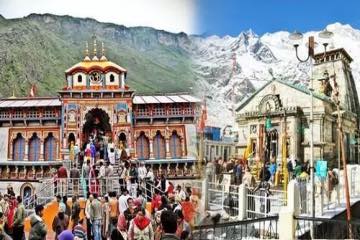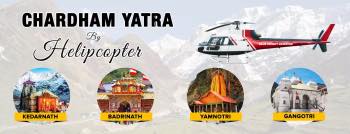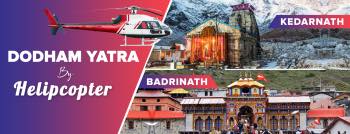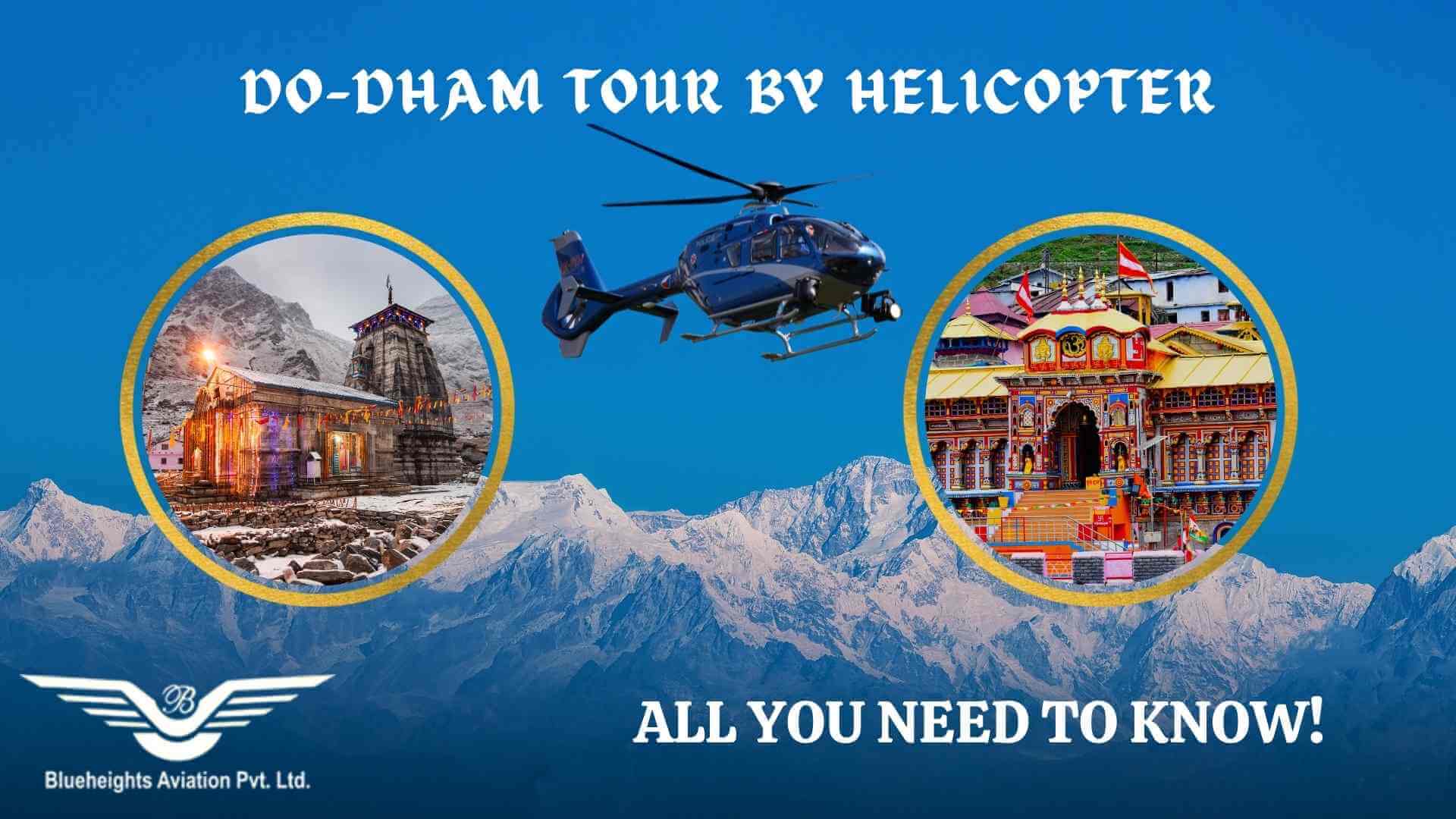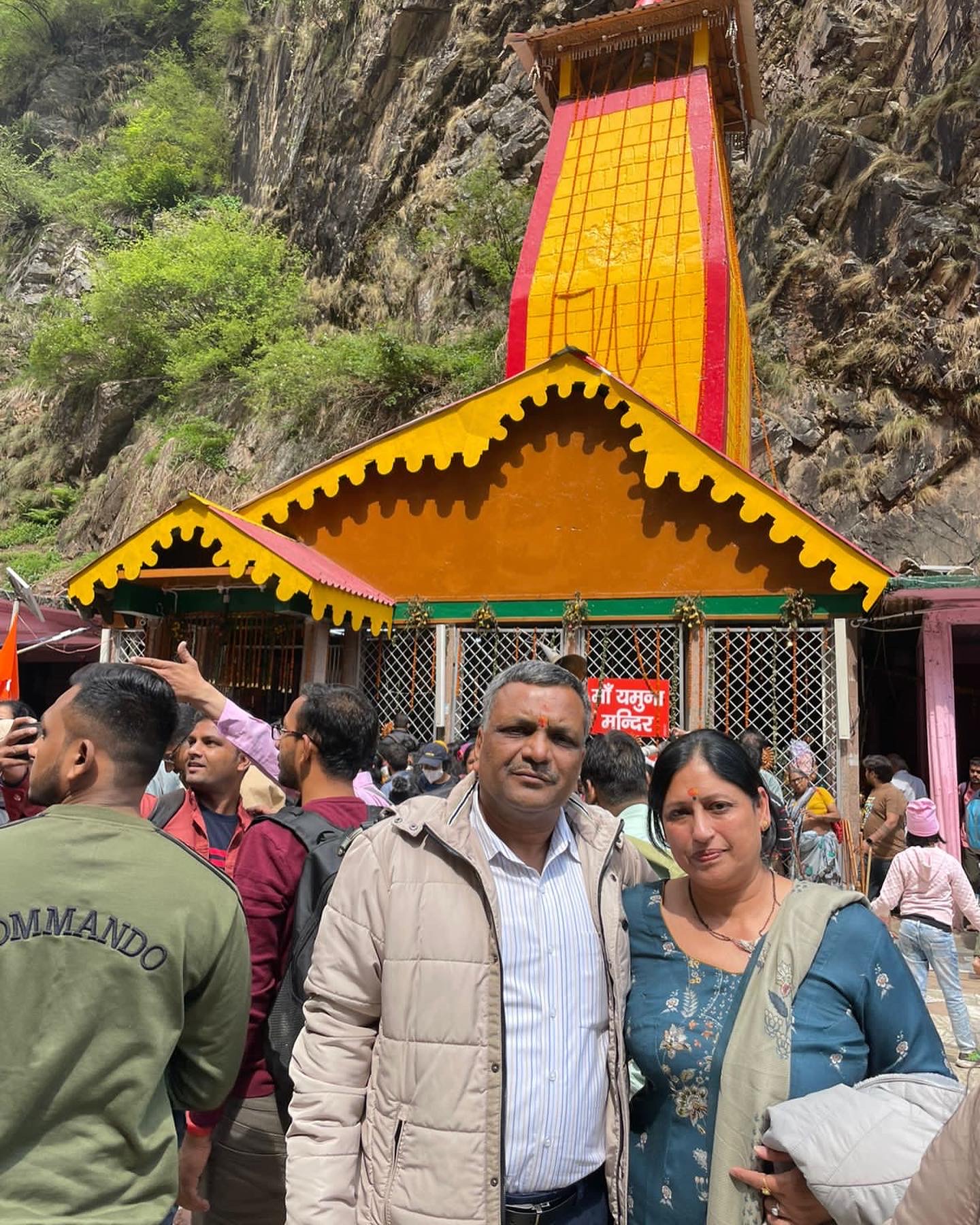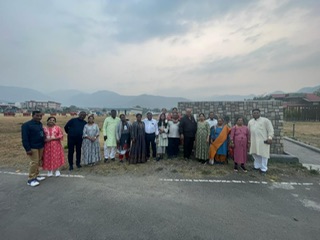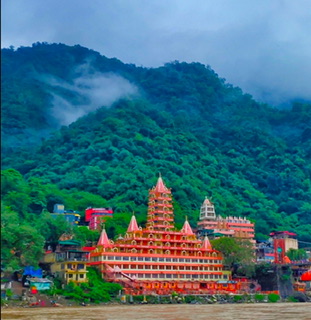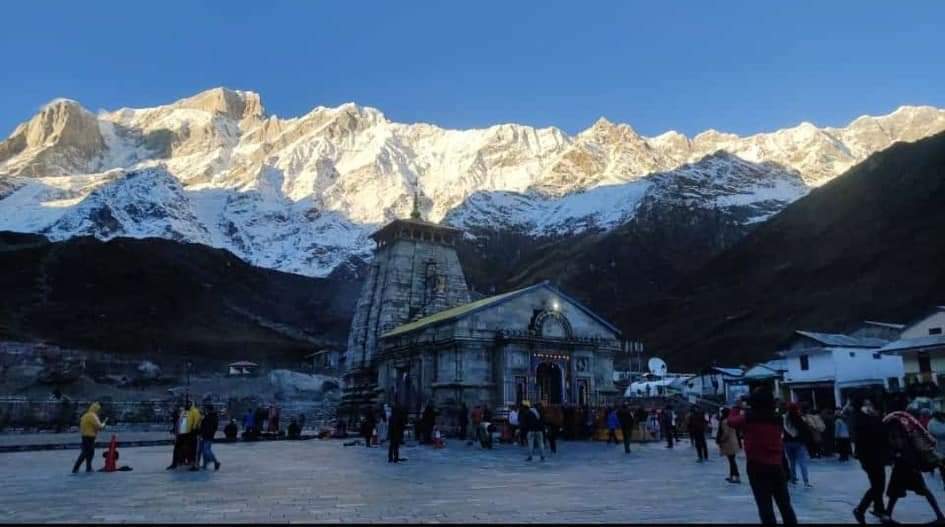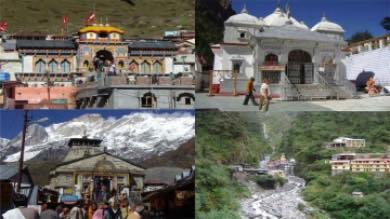17 Amazing Facts about Gangotri Temple
Gangotri is one of those places that are considered sacred by Hindus. This place is known as the birthplace of Goddess Ganga. The vibrant history of Gangotri attracts thousands of tourists every year. This seat of Goddess Ganga comes with many exciting facts worth unveiling.
Let's find out some of the lesser-known yet amazing facts about Gangotri temple:
YOU MIGHT ALSO LIKE: HOW TO REACH TO GANGOTRI (2022): [STEP BY STEP] GUIDE
1. Vishnukund, Suryakund and Bhramakund
Situated on one side of the bridge, the Suryakund waterfall is a mesmerizing site for pilgrims. The fall from the Bhagirathi river makes it a fantastic site to explore. Just 500m ahead of Gangotri temple, you can reach the temple via NH 108. Vishnukund and Bhramakund are two other essential ponds where devotees take baths to attain salvation and penance.
2. Bhairon Jhap
Bhairon Jhap hill is located on the left bank of Bhagirathi in Gangotri. It is located on the left side of the temple. According to legends, in ancient times, people used to climb the rock to fall from the hill to attain heaven. Hence, it is named Jumping rock point, pranotsarg sthal and death point.
3. Gauri Kund
To the west of Bhagirathi, Gauri Kund is located near the Gangotri temple. This pool of waterfall is famous among devotees such as Gauri Kund. The natural Shivling here is the main attraction of this place. It is believed that Maa Gauri did penance at this place to attain Lord Shiva.
4. Jahnu Muni Ashram
Jangala is located on the banks of Jarganga, which is famous as the ashram of Maharishi Jahnu Muni. It comes after Tharali in the route of Harsil on Gangotri Marg. Previously known as Jannadvipa, Jahnu Muni used to live here. He used to chant Gayatri Mantra at the bank of the Bhagirathi River near his ashram.
Once his spoon fell into the river, the strong current of Bhagirathi took it away, making him furious. He drank the entire river. King Bhagiratha worshipped Jahnu Muni to please and requested him to bring back the River. Jahnu Muni cut his thigh, and the river flew out of his body. Hence, the place has become famous for its historical relevance.
5. Kedar Tal and Kedarganga Confluence
Kartal is a renowned Kedar pond at a distance of 7 km. It is believed that Kedar Ganga originated from the Kedartal itself. It flows down independently and then merges with Bhagirathi.
6. Mukta Gufa
Just 1 km from Gauri Kund, at the left of the Bhagirathi river, there is a natural flat plain covered with rocks. It is known as Patangana or Pandav Gufa, where Pandavas reach on the advice of Vyas Ji. They perform a Dev Yagya to atone for the sin of killing a Cow. After that, they reach Kedarnath via the banks of Rudraganga to reach Kedarnath.
7. An Important Site on Char Dham Yatra
Dedicated to the goddess Ganga, Gangotri is one of the significant sites on Chota Char Dham yatra in Uttrakhand. The other prominent Dhams are Yamunotri, Kedarnath and Badrinath.
8. Situated in the Himalayan Region
Gangotri lay near the Indo-china border and surrounded by all the sides giving unique views of the valley from the temple. Visitors receive tranquillity and peace visiting here and thus making it a perfect destination for meditation.
9. Mentioned in all our purans
In all the Vedas and Puranas, River Ganga is considered one of the most sacred rivers in Hinduism. Puranas like Matsya Purana, Markandeya Purana, Agni Purana, Narada Purana and Agni Purana mentioned detailed descriptions of Goddess Ganga.
10. Remains closed for 6 months
As all the temples in Uttarakhand are 3000 meters above sea level, winter weather is chilly with snowfall. Due to this, most temples, including the Gangotri temple, become inaccessible between November and March.
The high altitude of the Himalayan region attracts extreme cold climatic conditions during this month leading to a thick layer of snow. The best time to visit Gangotri is from April to November. April - June is considered the best with pleasant weather.
11. Origin of River Ganges
Gomukh glacier is located just 19 km away from the Gangotri temple. Also known as the origin of the River Ganga, this place holds high relevance for its historical relevance.
12. Goddess Ganga Diety
You can find the exquisite sculptures of Goddess Ganga- Yamuna decorated with glittering ornaments. You can also find the idols of Adi Guru Shankaracharya, Bhagirath, Mahalakshmi Mata, Saraswati Maa and Annapurna Maa.
13. Mukhwa Daughter
While people worldwide consider Ganga as a mother, the people of Mukhwa village consider Ganga, their daughter. When the doors of Gangotri open on Akshaya Tritiya, the people of MUkhwa village send the idol of Bhoga idol of Ganga as a custom of their daughter's farewell.
14. Priests of Gangotri
Mukhwa is appointed as the priest of Gangotri temple by Maharaja Amar Singh Thapa. Before Mukhwa Priests, the Khas Rajputs of Ticknor were appointed as the priests of Gangotri.
15. Bhagirath Rock (Shila)
Bhagirath rock lies on the bank of the Bhagirath river at the footstep of Gangotri temple. King Bhagirath meditated deeply to please Goddess Ganga to request her to descend to earth to provide moksha to the ashes of the ancestors cursed by the Sage Kapil.
16. Winter Residence
As the Gangotri temple remains closed in winters due to extreme cold climatic conditions, the Goddess Ganga idol resides in Mukhwa village for winter duration. Goddess Ganga is also considered the sister of Village deity Someshwar.
17. How Ganga received its Name
Originated as Bhagirathi, the river Gange acquires its name from Devprayag Dham, where it meets the Alakananda. The origin of the Ganga river at Gaumukh sets in the Gangotri Glacier, a 19 km trek from Gangotri.
YOU MIGHT ALSO LIKE:
You Might Also Like
Do Dham yatra by helicopter
Chardham Yatra Helicopter Services
Dodham yatra by helicopter
Kedarnath yatra helicopter services
Related Topic
FAQS

